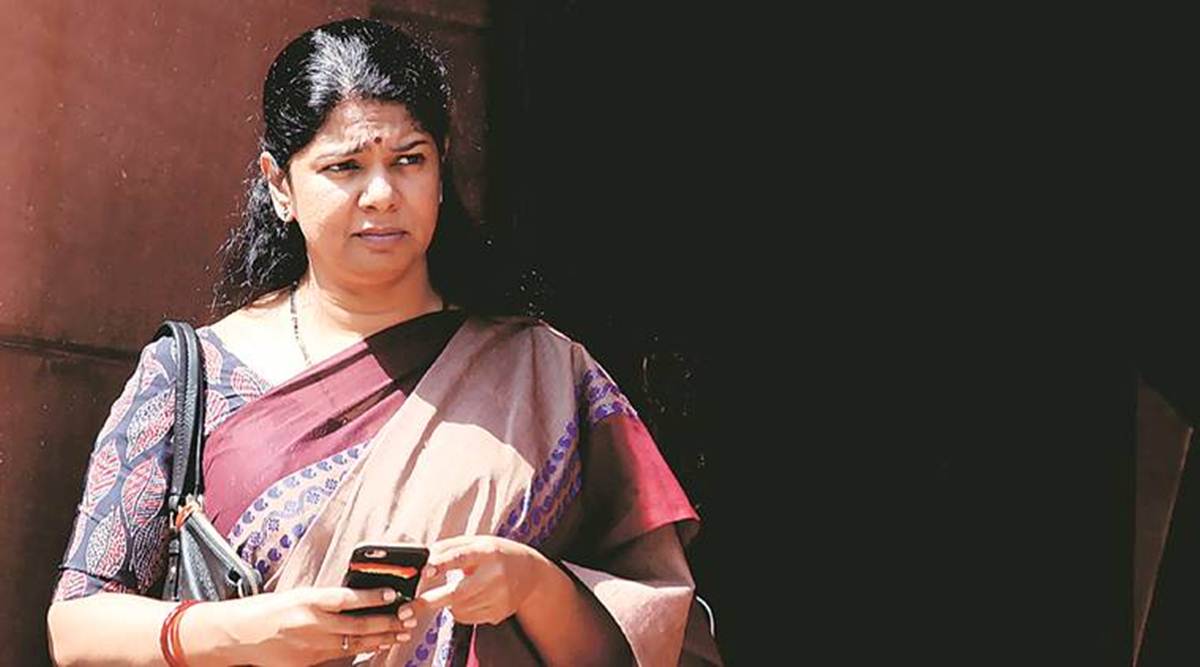 Last week, Kanimozhi complained that a CISF personnel at Chennai airport questioned her for not responding to a query in Hindi.
Last week, Kanimozhi complained that a CISF personnel at Chennai airport questioned her for not responding to a query in Hindi.Last Sunday, DMK leader and MP Kanimozhi Karunanidhi complained that a CISF personnel at Chennai airport questioned her if she was an Indian when she refused to respond to a query in Hindi and asked to be spoken to in English or Tamil. She stated that “officials have not been sensitised to be inclusive and respect diversity”. A week before this incident, Tamil Nadu Chief Minister and AIADMK leader Edappadi Palaniswami rejected the three-language formula proposed in the Centre’s New Education Policy. Tamil Nadu, he said, will follow the existing two-language formula that was instituted to resist imposition of Hindi.
Kanimozhi and Palaniswami were speaking the language of the Dravidian Movement. While Tamil devotion, to use a phrase of scholar Sumathi Ramaswamy, has a long history, the Dravidian Movement under Periyar E V Ramaswamy and C N Annadurai, in the first half of the 20th century, turned it into an instrument for political mobilisation. The Tamil-speaking region was not an exception in discovering itself as a linguistic community, of course. Even as the national movement under Gandhi was on the upswing, sub-nationalist sentiment centred on a linguistic self was developing, mostly complimenting the idea of a pan-Indian identity, in many parts of India.
However, in the Tamil region, the devotion to language got radicalised under Periyar and Anna and came to represent the idea of a new egalitarian self: It was posited as the Other to a Brahminical, Aryan, and Sanskrit/Hindi persona. Policy or politics that questioned Tamil identity, hence, was seen as an assault on a political idea that contained attitudes such as anti-casteism, rationalism, self-respect/ egalitarianism, gender justice. Tamil identity politics has since evolved to speak for a global Tamil community and built filial relations with people of Tamil origin in Sri Lanka, Malaysia, South Africa etc, espousing its causes and rights.
The potency of Tamil identity as a political idea was noticed first in 1937 when the Dravida Kazhagam under Periyar and Anna mobilised against the Congress government’s decision to impose Hindi in schools in Madras Presidency. It influenced the Constituent Assembly from declaring Hindi the sole official language of the Republic.
The second time the language issue hit headlines was when the Centre introduced the Official Languages Act, 1963. Anna, who had parted ways with Periyar to form the DMK in 1949, led the challenge against the Centre’s pro-Hindi push. As the campaign picked up, in January 1964, Chinnasami, a 27-year-old, self immolated at Tiruchirapalli railway station after raising the slogan, “Hindi ozhiga, Tamil vaazhga” (Hindi must leave, Tamil should live). The frenzy spread and many more people became martyrs to the Tamil cause. Thousands were arrested. In the Mani Ratnam film Iruvar, the sentiment of the anti-Hindi agitation that launched the DMK to power in 1967 is captured in the song, “Udal mannukku, uyir Tamizhukku (Body to earth, life for Tamil)”.
In office, the DMK, under Anna and Karunanidhi, initiated many symbolic transformations including renaming Madras state as Tamil Nadu, holding the first Global Tamil Conference, Tamil archana (prayer) in temples, and even instituting a state prayer song that invoked the greatness of Mother Tamil. Popular culture took the cue from the pro-Tamil mobilisations and deepened the idea of linguistic pride. Tamil subnationalism has resonated in mobilisations for the Eelam cause, Cauvery water dispute, and Jallikattu.
Ironically, both the DMK and AIADMK, offshoots of the Dravidian Movement, have been partners in coalition governments at the Centre, including as allies of the BJP, which privileges a unitarian idea of Hindu India over the concept of a secular federation that leaders like Anna promoted. Tamil identity politics, now, is invoked by the Dravidian outfits mainly to mobilise people against national parties and the Centre as well as to paper over social and economic fault lines.
With Assembly polls scheduled next year, and the BJP exploring options in the state, it may find a new release in Tamil Nadu.